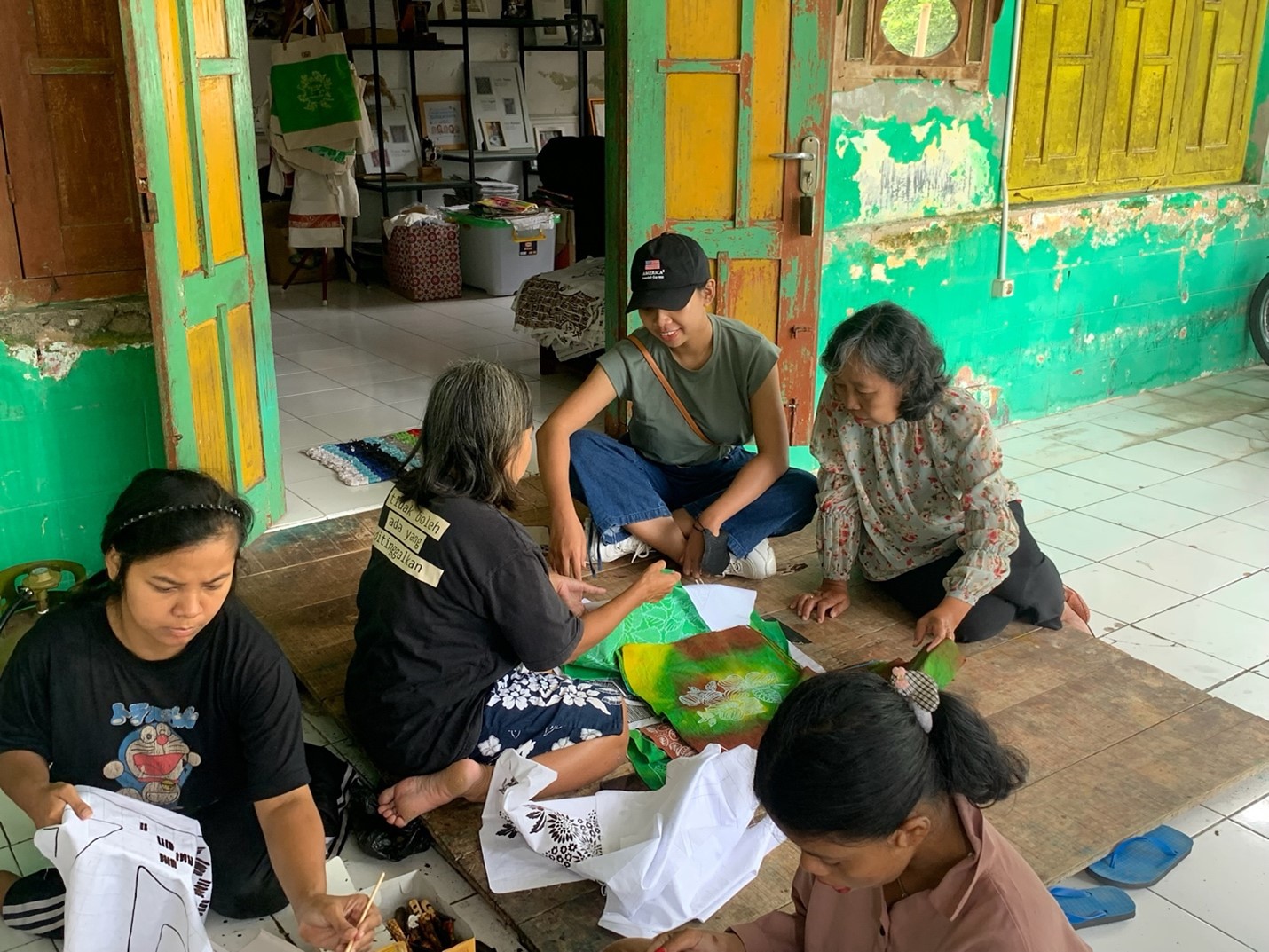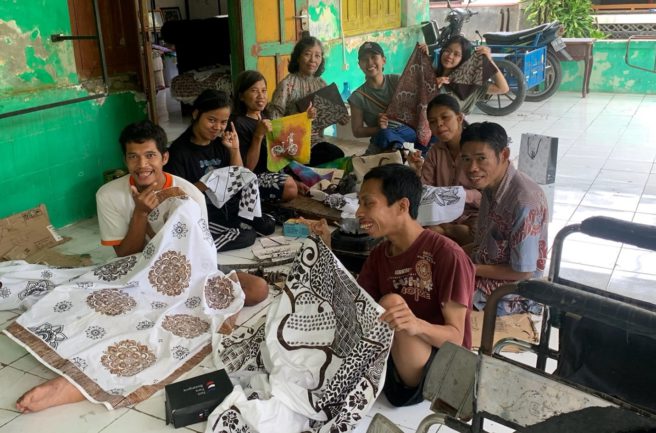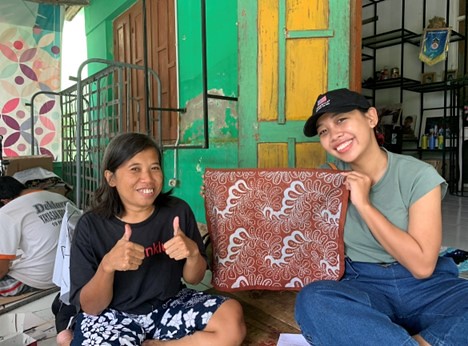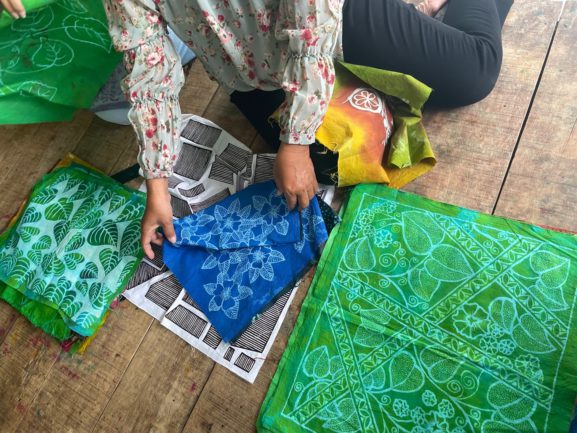Trace on Earth, Empowering those with Disabilities

Greenheart International recently heard from 2022 Greenheart Impact Grant awardee, Tiara Prasetyaningtyas, on her project Trace on Earth. As this project has done so much already, it is inspiring to hear how it continues.
People with disabilities face higher rates of unemployment and poverty compared to those without disabilities. This can be attributed to several factors, including discrimination, lack of access to education and training, and physical and attitudinal barriers in the workplace. These challenges can prevent individuals with disabilities from fully participating in the labour force and accessing economic opportunities. I wanted to create change in my community with a project that involves people with disabilities to create souvenirs that have economic value so that activity can be a source for their income.

Greenheart has supported me through funding from the Greenheart Impact Grant which was given to my project entitled Trace on Earth to provide training for people with disabilities. Access to training programs is critical for people with disabilities to acquire the skills and knowledge needed to participate in the labor force. These programs should be designed to be accessible and inclusive to all individuals, regardless of their disability. This project is also encouraging entrepreneurship among individuals with disabilities can provide a pathway to economic empowerment and self-sufficiency.
Another benefit of training programs for people with disabilities is that they can promote greater independence and autonomy. Many people with disabilities rely on the support of others to carry out daily tasks and activities. By providing training that teaches them how to do things for themselves, we can help to promote greater independence and reduce their reliance on others.

Of course, providing training programs for people with disabilities requires resources and expertise. It is important to work with qualified trainers and instructors who have experience working with individuals with disabilities and can provide training that is tailored to their needs. It is also important to ensure that training programs are accessible and inclusive, so that everyone can participate regardless of their disability. What’s more, this project also uses leftover materials in making souvenirs, thereby reducing waste in my community. This is proof that people with disabilities can also contribute to society in meaningful ways.
I have seen increased confidence and self-esteem among the participants. By overcoming challenges, acquiring new skills, and receiving recognition for their achievements, participants can develop a greater belief in their abilities and worth. This can lead to personal growth and a more positive self-perception.
To further this project, we participated in local markets to provide exposure and potential sales opportunities. We decided to join events because it often attracted a diverse audience, including tourists, collectors, and individuals interested in supporting social projects. We also collaborate with local retail stores that specialize in selling handicrafts & souvenirs to sell these products from this project.

There is still much work to be done, but there are many promising developments on the horizon. My experience of helping the disability community has shown me that there is no one-size-fits-all solution to the complex problem of disability inclusion. However, by working together, sharing best practices, and advocating for change, we can make a real difference in the lives of people with disabilities. I am grateful for the opportunity to learn from the inspiring individuals and organizations that are leading the way in this important work, and I look forward to seeing what the future holds.